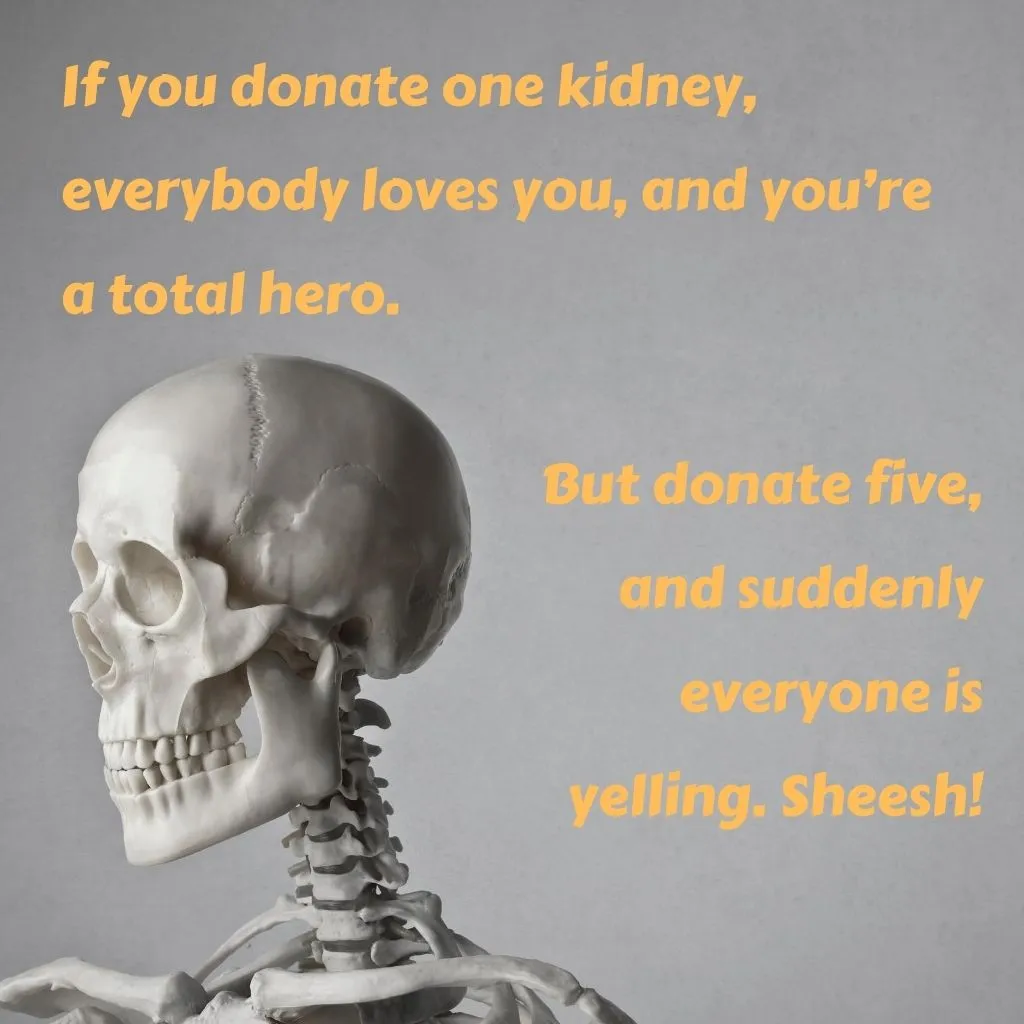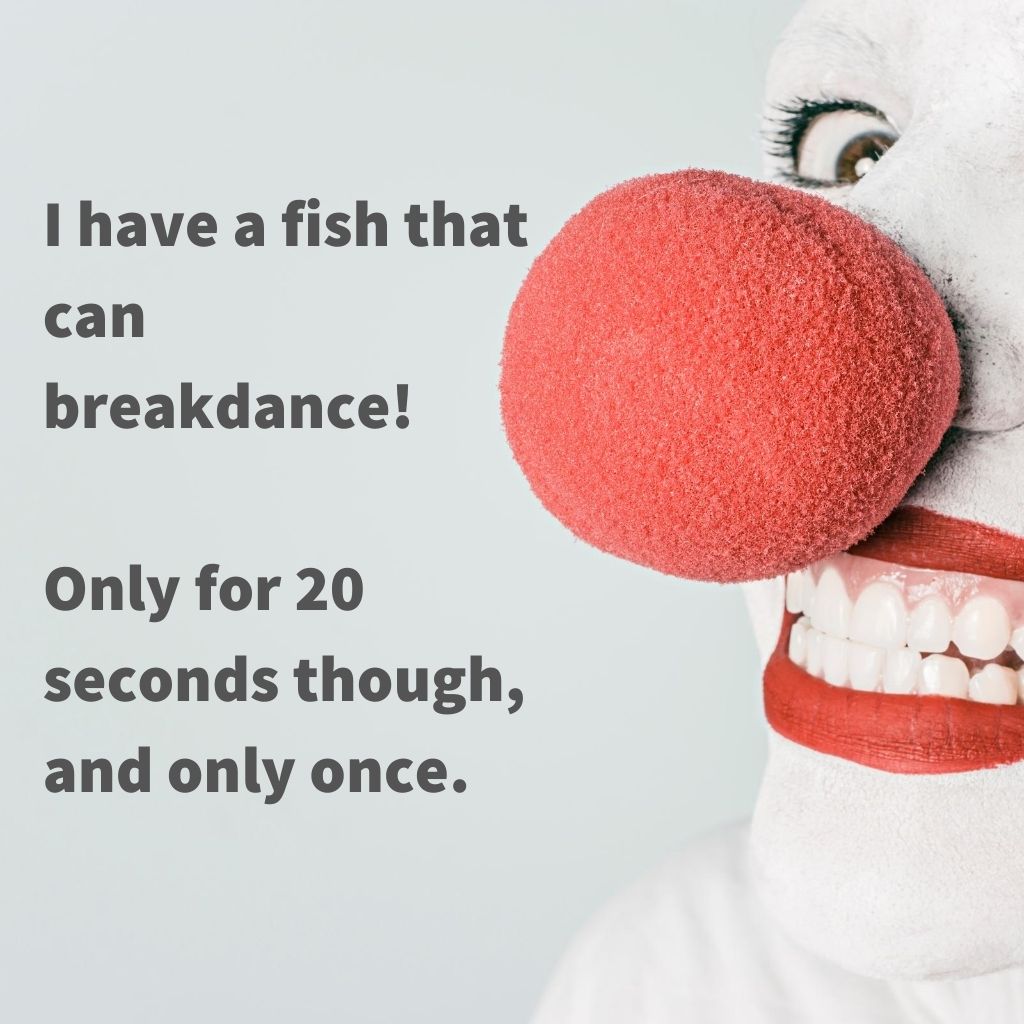What are dark jokes?
Dark jokes are a type of humor that uses morbid, offensive, or taboo topics as the punchline. They often deal with death, violence, or other sensitive subjects, and can be seen as a way to cope with or make light of these difficult topics.
Dark jokes can be controversial, and some people may find them to be offensive or inappropriate. However, others appreciate them for their ability to find humor in even the darkest of situations.
Read also:Joe Bastianich Masterchef Stars Personal Life And Marital Status
There are many different types of dark jokes, including:
- Jokes about death and dying
- Jokes about violence and gore
- Jokes about mental illness
- Jokes about physical disabilities
- Jokes about racism and sexism
While dark jokes can be funny, it's important to remember that they can also be hurtful or offensive. It's important to be mindful of your audience when telling dark jokes, and to avoid making jokes that could be interpreted as making light of serious issues.
Ultimately, whether or not you find dark jokes funny is a matter of personal preference. If you're not sure whether or not you'll find a joke funny, it's best to err on the side of caution and avoid telling it.
Dark Jokes
Dark jokes are a type of humor that uses morbid, offensive, or taboo topics as the punchline. They can be seen as a way to cope with or make light of difficult topics such as death, violence, or mental illness.
- Morbid
- Offensive
- Taboo
- Controversial
- Funny
- Hurtful
- Personal
Dark jokes can be a way to cope with difficult topics, but they can also be hurtful or offensive. It's important to be mindful of your audience when telling dark jokes, and to avoid making jokes that could be interpreted as making light of serious issues.
Ultimately, whether or not you find dark jokes funny is a matter of personal preference. If you're not sure whether or not you'll find a joke funny, it's best to err on the side of caution and avoid telling it.
Read also:Enduring Allure The Timeless Appeal Of Dawn Wells Measurements And More
1. Morbid
Morbid refers to a preoccupation with death, decay, and other unpleasant or macabre subjects. In the context of dark jokes, morbidity often manifests in the form of jokes about death, violence, or other taboo topics. These jokes can be seen as a way to cope with or make light of difficult topics, but they can also be seen as morbid because they dwell on unpleasant or disturbing subjects.
- Death
Many dark jokes revolve around the topic of death. These jokes can be used to cope with the fear of death or to make light of the inevitability of death. For example, a dark joke about death might be: "What do you call a dead body with no arms and no legs? A torso."
- Violence
Dark jokes can also be about violence. These jokes can be used to cope with the fear of violence or to make light of the seriousness of violence. For example, a dark joke about violence might be: "What do you call a guy with no arms and no legs in a pool? Bob."
- Taboo topics
Dark jokes can also be about taboo topics, such as sex, religion, or politics. These jokes can be used to challenge social norms or to make light of sensitive subjects. For example, a dark joke about taboo topics might be: "What do you call a priest with a rubber hand? Father Finger."
- Mental illness
Dark jokes about mental illness can be a controversial and unsettling form of humor, but for some people, they can provide a way to cope with or make light of a serious condition. For example, a dark joke about mental illness might be: "What do you call a person with no arms and no legs in a mental hospital? A ceiling fan."
Ultimately, whether or not you find dark jokes funny is a matter of personal preference. However, it's important to be mindful of the potential for these jokes to be hurtful or offensive, and to avoid making jokes that could be interpreted as making light of serious issues.
2. Offensive
Dark jokes are often offensive because they deal with taboo topics or use humor that is considered to be in poor taste. This can be seen as a way to challenge social norms or to make light of serious issues, but it can also be seen as offensive because it can hurt or upset people.
There are many different types of offensive dark jokes, including:
- Jokes that make light of serious issues, such as death, violence, or mental illness.
- Jokes that use racist, sexist, or homophobic slurs.
- Jokes that make fun of people with disabilities.
- Jokes that are simply mean-spirited or cruel.
While some people may find dark jokes funny, it is important to remember that they can also be hurtful or offensive. It is important to be mindful of your audience when telling dark jokes, and to avoid making jokes that could be interpreted as making light of serious issues or that could hurt or upset people.
Ultimately, whether or not you find dark jokes funny is a matter of personal preference. However, it is important to be aware of the potential for these jokes to be offensive, and to avoid making jokes that could be interpreted as making light of serious issues or that could hurt or upset people.
3. Taboo
A taboo is a social or cultural prohibition against certain behaviors, practices, or topics. Taboos can vary from culture to culture, but they often relate to topics that are considered to be sacred, dangerous, or offensive.
- Religion
Many religions have taboos against certain behaviors, such as eating pork or drinking alcohol. These taboos are often based on religious beliefs about what is considered to be pure or impure.
- Sex
Sex is a taboo topic in many cultures. This can lead to dark jokes that make light of sexual topics or that challenge social norms around sex.
- Death
Death is a taboo topic in many cultures. This can lead to dark jokes that make light of death or that challenge social norms around death.
- Violence
Violence is a taboo topic in many cultures. This can lead to dark jokes that make light of violence or that challenge social norms around violence.
Dark jokes can be a way to challenge taboos or to make light of serious issues. However, it is important to be mindful of the potential for these jokes to be hurtful or offensive. It is important to avoid making jokes that could be interpreted as making light of serious issues or that could hurt or upset people.
4. Controversial
Dark jokes are often controversial because they deal with taboo topics or use humor that is considered to be in poor taste. This can be seen as a way to challenge social norms or to make light of serious issues, but it can also be seen as offensive because it can hurt or upset people.
- Offensive language
Dark jokes often use offensive language, such as racial slurs, homophobic slurs, or sexist slurs. This can be seen as a way to challenge social norms or to make light of serious issues, but it can also be seen as offensive because it can hurt or upset people.
- Mocking sensitive topics
Dark jokes often mock sensitive topics, such as death, violence, or mental illness. This can be seen as a way to challenge social norms or to make light of serious issues, but it can also be seen as offensive because it can hurt or upset people.
- Punching down
Dark jokes often punch down, meaning that they make fun of people who are less powerful or less fortunate than the joker. This can be seen as a way to challenge social norms or to make light of serious issues, but it can also be seen as offensive because it can hurt or upset people.
- Going too far
Sometimes, dark jokes go too far. They may be so offensive or hurtful that they cross the line into hate speech or bullying. This is never acceptable, and it is important to avoid making jokes that could be interpreted as hate speech or bullying.
Ultimately, whether or not you find dark jokes funny is a matter of personal preference. However, it is important to be mindful of the potential for these jokes to be hurtful or offensive, and to avoid making jokes that could be interpreted as hate speech or bullying.
5. Funny
Dark jokes are often funny because they use humor to explore taboo topics or to challenge social norms. This can be a refreshing and liberating experience for people who are tired of the same old jokes about everyday topics. Dark jokes can also be a way to cope with difficult emotions, such as anger, sadness, or fear.
- Surprise
Dark jokes often rely on surprise to get a laugh. The unexpected punchline can catch the listener off guard and make them laugh out loud. For example, a dark joke about death might be: "What do you call a dead body with no arms and no legs? A torso."
- Irony
Dark jokes often use irony to create humor. This can be seen in jokes that use sarcasm or that play on words. For example, a dark joke about violence might be: "What do you call a guy with no arms and no legs in a pool? Bob."
- Exaggeration
Dark jokes often use exaggeration to create humor. This can be seen in jokes that use hyperbole or that make absurd claims. For example, a dark joke about mental illness might be: "What do you call a person with no arms and no legs in a mental hospital? A ceiling fan."
- Black comedy
Dark jokes often use black comedy to create humor. This type of humor is characterized by its use of dark or morbid subject matter. For example, a dark joke about death might be: "What do you call a dead body with no arms and no legs? A torso."
These are just a few of the ways that dark jokes use humor to explore taboo topics and to challenge social norms. Dark jokes can be a funny and refreshing way to deal with difficult emotions and to see the world in a new way.
6. Hurtful
Dark jokes can be hurtful because they often deal with taboo topics or use humor that is considered to be in poor taste. This can be seen as a way to challenge social norms or to make light of serious issues, but it can also be seen as hurtful because it can hurt or upset people.
There are many different ways that dark jokes can be hurtful. For example, dark jokes can be hurtful if they:
- Make light of serious issues, such as death, violence, or mental illness.
- Use racist, sexist, or homophobic slurs.
- Make fun of people with disabilities.
- Are simply mean-spirited or cruel.
It is important to be aware of the potential for dark jokes to be hurtful. If you are telling a dark joke, it is important to be mindful of your audience and to avoid making jokes that could be interpreted as making light of serious issues or that could hurt or upset people.
If you are the target of a dark joke, it is important to remember that you have the right to be offended. You can tell the person who told the joke that you did not appreciate it, or you can simply walk away.
Dark jokes can be a funny and refreshing way to deal with difficult emotions and to see the world in a new way. However, it is important to be aware of the potential for these jokes to be hurtful. If you are telling a dark joke, it is important to be mindful of your audience and to avoid making jokes that could be interpreted as making light of serious issues or that could hurt or upset people.
7. Personal
Dark jokes often draw upon personal experiences, vulnerabilities, and insecurities. This can be a way to cope with or make light of difficult or painful experiences. It can also be a way to challenge social norms or to explore taboo topics.
- Self-deprecation
Self-deprecating dark jokes can be a way to cope with insecurities or to make light of personal flaws. For example, a person with a physical disability might make a joke about their disability.
- Trauma
Dark jokes can also be a way to cope with trauma or difficult experiences. For example, a person who has experienced sexual abuse might make a joke about their experience.
- Taboo topics
Dark jokes can also be used to explore taboo topics. For example, a person might make a joke about death or suicide.
- Social commentary
Dark jokes can also be used to make social commentary. For example, a person might make a joke about racism or sexism.
Dark jokes can be a powerful way to express personal experiences and to challenge social norms. However, it is important to be mindful of the potential for these jokes to be hurtful or offensive. It is important to avoid making jokes that could be interpreted as making light of serious issues or that could hurt or upset people.
Dark Jokes FAQs
This section provides answers to frequently asked questions about dark jokes. These questions address common concerns and misconceptions about this type of humor.
Question 1: Are dark jokes offensive?
Answer: Dark jokes can be offensive to some people, as they often deal with taboo topics or use humor that is considered to be in poor taste. However, it is important to remember that humor is subjective, and what one person finds offensive, another person may find funny. It is important to be mindful of your audience when telling dark jokes, and to avoid making jokes that could be interpreted as making light of serious issues or that could hurt or upset people.
Question 2: Are dark jokes a sign of mental illness?
Answer: No, dark jokes are not a sign of mental illness. However, people with mental illness may be more likely to use dark humor as a way to cope with their condition. Dark humor can be a healthy way to express difficult emotions and to make light of difficult situations.
Question 3: Are dark jokes ever appropriate?
Answer: Dark jokes can be appropriate in certain contexts, such as among friends who share a similar sense of humor. However, it is important to be mindful of your audience and to avoid making jokes that could be interpreted as making light of serious issues or that could hurt or upset people.
Question 4: What is the difference between dark humor and black comedy?
Answer: Dark humor is a type of comedy that deals with taboo topics or uses humor that is considered to be in poor taste. Black comedy is a more extreme form of dark humor that often deals with very dark and disturbing topics. Black comedy is often used to satirize or criticize society.
Question 5: Why do people like dark jokes?
Answer: People like dark jokes for a variety of reasons. Some people find dark jokes to be funny because they surprise them or because they challenge social norms. Others find dark jokes to be a way to cope with difficult emotions or to make light of difficult situations.
Summary: Dark jokes can be a controversial and unsettling form of humor, but for some people, they can provide a way to cope with difficult emotions or to make light of serious issues. It is important to be mindful of your audience when telling dark jokes, and to avoid making jokes that could be interpreted as making light of serious issues or that could hurt or upset people.
Transition: Dark jokes are a complex and multifaceted form of humor. They can be funny, offensive, hurtful, or even therapeutic. It is important to understand the different types of dark jokes and their potential impact before telling them.
Conclusion
Dark jokes are a complex and multifaceted form of humor. They can be funny, offensive, hurtful, or even therapeutic. It is important to understand the different types of dark jokes and their potential impact before telling them.
Dark jokes can be a way to cope with difficult emotions, to make light of serious issues, or to challenge social norms. However, it is important to be mindful of your audience and to avoid making jokes that could be interpreted as making light of serious issues or that could hurt or upset people.
Ultimately, whether or not you find dark jokes funny is a matter of personal preference. However, it is important to be aware of the potential for these jokes to be hurtful or offensive, and to avoid making jokes that could be interpreted as hate speech or bullying.


